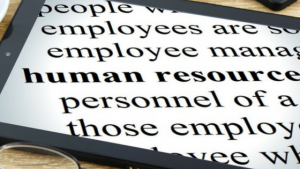The choices in HR systems today are mind boggling. Everyone wants to get on the band wagon and sell you something that will supposedly make your life easier, is user friendly, (read good UX), allows you to crunch large volumes of data in minutes. HR systems can be as basic as an HRIS or as complicated as a performance management system with 360 review capability and goal planning and accomplishments.
Let’s talk first about functionality and next week about what you want to look for.
HRIS
An HRIS is a Human Resources Information System.
This is your basic system that tracks all the pertinent information about your employees.
HRIS solutions typically track:
- Training of employees
- Open enrollment and management of benefits
- Compensation management
- Human resources reporting
- Self-service for applicants, employees, and managers
- Personal information, Pay information, title, job grade etc..
Performance Management Systems
You may also have a separate Performance System. A Performance Management System normally includes performance appraisal data and productivity information data. Documentation of employee performance and of how the performance was measured and reported is critical to your employees understanding this type of system. Many of these systems come with the capability to offer:
- Performance appraisals
- 360 reviews where an employee is reviewed by the manager, their peers and their subordinates
- goal planning, setting and accomplishments
- Succession and development plans
Applicant Tracking Systems
Applicant Tracking Systems are systems that allow you to create a user/applicant experience.
The application process becomes paperless with an applicant tracking system, so it is simple to store, recall, or purge applications from the system with just a few clicks. This helps to ensure that no critical information is lost and all necessary information is readily available for open positions now or in the future.
Compensation systems
Ideally your compensation system should track all aspects of your employee’s compensation including:
- Base salary
- Bonuses
- Incentive comp
- Long term incentive comp
- Equity/stock/RSU’s etc..
It is helpful if your Performance Appraisal system feeds directly into your compensation system, meaning less manual input or expensive integration for you.
Be very careful in selecting your systems. Spend at least 3x the time you allotted to understanding and testing the system before you commit. On a personal note, we have had a very bad experience with Cornestone. While their systems have a lot of capability, you would literally need to be a system admin in order to build out the back end which they require you to do. They are the farthest thing from user friendly with very poor UX design.
